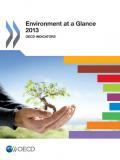This paper presents comparative data on innovation in selected climate change mitigation and adaptation technologies in the context of Africa. Such analysis informs policy aimed at encouraging international technology transfer and development of domestic innovation capacities. The authors present detailed analysis of the role of Africa in development of these technologies (invention), and then move on to examine Africa as a technology market (as reflected in patenting). In addition, the authors briefly touch upon the question of cross-border technology development (co-invention) in Africa. Despite Africa’s generally low volume of inventive activity in these fields in comparison with other countries, inventive activity is disproportionately directed towards mitigation and adaptation technologies. In addition, the rate of international co-invention for most mitigation and adaptation technologies is much higher in Africa than in the rest of the world. And finally, rates of protection of climate technologies at African intellectual property offices are high relative to other technologies.

This book includes key environmental indicators endorsed by OECD Environment Ministers and major environmental indicators from the OECD Core Set. These indicators reflect environmental progress made since the early 1990s and thus contribute to measuring environmental performance. Organised by issues such as climate change, air pollution, biodiversity, waste or water resources, they provide essential information for all those interested in the environment and in sustainable development.
The magnitude of climate change and of the ensuing changes in production systems requires us to seek solutions to meet these challenges and to guide us in making the necessary production transitions, while simultaneously guaranteeing social cohesion, participation in decision-making and best use of potential benefits in terms of job creation. In this sense, the Green Jobs Programme of the ILO, in collaboration with the Sustain Labour Foundation, the International Foundation for Sustainable Development, has conducted this case study on the Social Dialogue Tables Initiative conducted in Spain as a mechanism for trade unions and employers' organizations, together with industry, environment and labour institutions to assess the effects on the competitiveness, employment and social cohesion of the Kyoto Protocol in Spain. This is a draft report. The final report will be ready in the coming months.
With the sun gradually setting on the Kyoto Protocol (Phase One), it has become quite apparent that the global response to resource scarcity and climate change is going to be variable and disaggregated.
Increasingly, countries and businesses across the globe are adopting various financial mechanisms and policies in order to manage such challenges. However, many such responses are restricted to advanced, developed countries, whereas the effects of climate change and the increasing cost of resources such as fossil fuels are likely to be more severe for developing countries. This dichotomy in response measures needs to be urgently addressed, and this report is an attempt to highlight the benefits of an inclusive growth oriented financial response mechanism with particular focus on India.
The technical brief highlights the close inter-linkages between climate change and the world of work and discusses entry points for promoting policy coherence between climate and social and labour policies.
